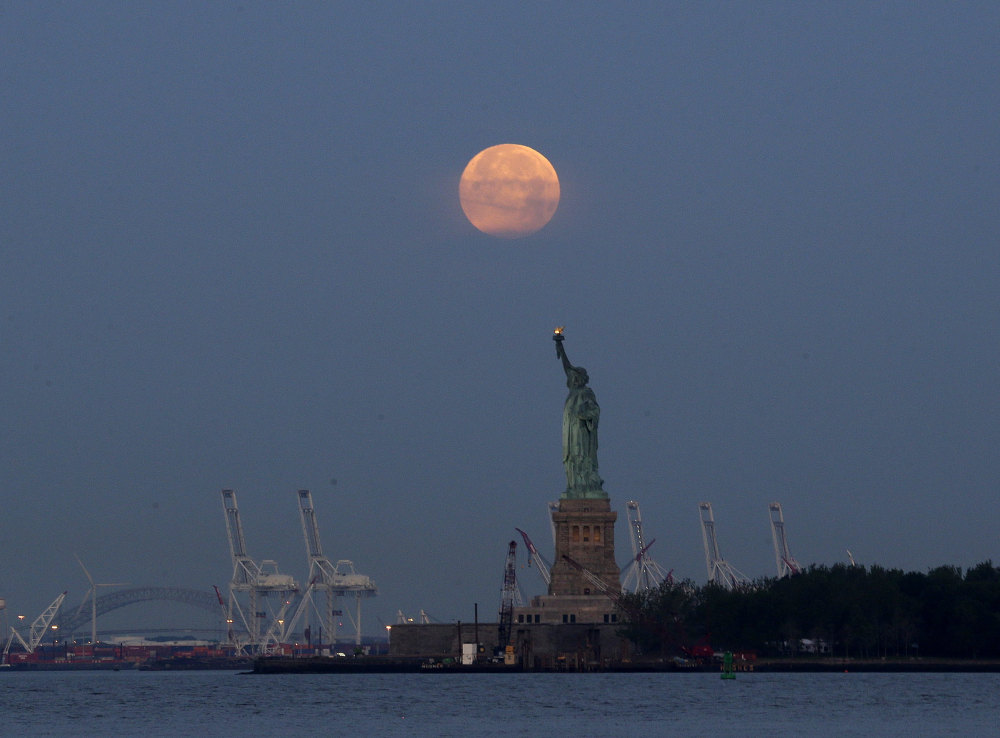President Donald Trump says accelerating the United States’ economic growth is one of his administration’s most cherished goals. On Wednesday, he embraced a legislative overhaul to the immigration system that, if enacted, would make that goal unattainable.
Trump endorsed a bill sponsored by a pair of conservative Republican senators, Tom Cotton of Arkansas and David Perdue of Georgia, that would reduce legal immigration by about half over a decade, a shift that a broad consensus of economists believe would sap the nation’s economic vitality. It would slash the number of immigrants granted green cards for legal permanent residence to about 540,000 annually from the current level of roughly 1 million.
The legislation would achieve that chiefly by eliminating green cards granted to siblings and grown children of current immigrants and green-card holders — so-called chain migration — while holding steady the number of green cards based on job skills. Those employment-based immigrants would be selected according to a points system that would favor English speakers with higher levels of education and high-paying job offers. So much for the tired, poor, huddled masses for whom the Statue of Liberty stands as a beacon.
Halving the number of legal immigrants would deprive an array of businesses of oxygen in the form of labor — exactly the opposite strategy required for growth in an economy where productivity is stagnant and unemployment is extremely low. By drastically constricting the supply of legal immigrants, Trump’s program would also sharply intensify the demand for undocumented immigrants, for whom no wall would be an effective deterrent.
In economic terms, therefore, the legislation makes little sense, which explains why Stephen Miller, the White House senior adviser for policy, repeatedly justified it by saying that ordinary Americans would support it in a poll. (Miller also made a point of mentioning that the poem summoning the tired, huddled masses to America was not on the original Statue of Liberty but added later. Touché!)
Miller is correct that as a percentage of the country’s population, foreign-born residents are near their highest level in almost a century. That stark fact is a major cause of the nativist, anti-immigration backlash that helped propel Trump’s candidacy and that sustains the hard core of his political base even after a calamitous first six months in office.
Yet with the U.S. birthrate at a historic low, and baby boomers starting to retire, it is a simple truth that the United States will need an infusion of immigrant labor to maintain economic growth, let alone expand it. To bar immigrants while the birthrate dips is to emulate Japan, whose own fading economic prospects are a direct result of precisely such conditions and policies.
The bill’s sponsors ignore Japan while citing Canada and Australia as models of the merit-based immigration system envisioned by the legislation. In fact, in per capita terms the United States already admits less than half the number of annual immigrants let in by both Canada and Australia. While fresh immigrants do depress wages for some low-skill and minority workers, as Trump argued, they act as rocket fuel for the overall economy. By cutting their numbers, Trump would undercut the nation’s prospects.
Editorial by The Washington Post
Copy the Story LinkSend questions/comments to the editors.



Success. Please wait for the page to reload. If the page does not reload within 5 seconds, please refresh the page.
Enter your email and password to access comments.
Hi, to comment on stories you must . This profile is in addition to your subscription and website login.
Already have a commenting profile? .
Invalid username/password.
Please check your email to confirm and complete your registration.
Only subscribers are eligible to post comments. Please subscribe or login first for digital access. Here’s why.
Use the form below to reset your password. When you've submitted your account email, we will send an email with a reset code.